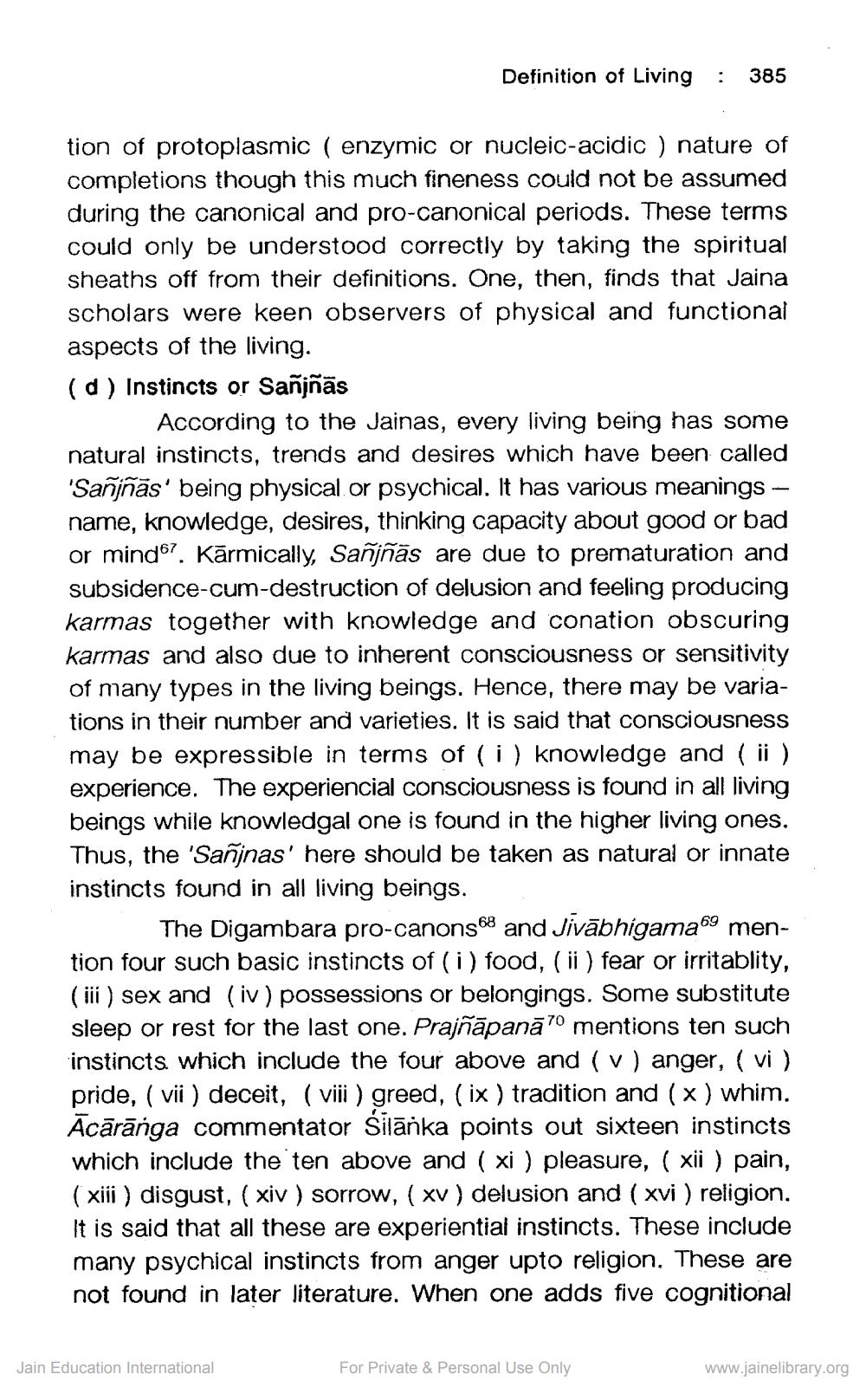________________
Definition of Living 385
tion of protoplasmic (enzymic or nucleic-acidic) nature of completions though this much fineness could not be assumed during the canonical and pro-canonical periods. These terms could only be understood correctly by taking the spiritual sheaths off from their definitions. One, then, finds that Jaina scholars were keen observers of physical and functional aspects of the living.
(d) Instincts or Sañjñās
According to the Jainas, every living being has some natural instincts, trends and desires which have been called 'Sanjñās' being physical or psychical. It has various meanings - name, knowledge, desires, thinking capacity about good or bad or mind. Kārmically, Sañjñās are due to prematuration and subsidence-cum-destruction of delusion and feeling producing karmas together with knowledge and conation obscuring karmas and also due to inherent consciousness or sensitivity of many types in the living beings. Hence, there may be variations in their number and varieties. It is said that consciousness may be expressible in terms of (i) knowledge and (ii) experience. The experiencial consciousness is found in all living beings while knowledgal one is found in the higher living ones. Thus, the 'Sañjnas' here should be taken as natural or innate instincts found in all living beings.
The Digambara pro-canons and Jivābhigama mention four such basic instincts of (i) food, (ii) fear or irritablity, (iii) sex and (iv) possessions or belongings. Some substitute sleep or rest for the last one. Prajñāpanā" mentions ten such instincts which include the four above and (v) anger, (vi) pride, (vii) deceit, (viii) greed, (ix) tradition and (x) whim. Acārānga commentator Silanka points out sixteen instincts which include the ten above and (xi) pleasure, (xii) pain, (xiii) disgust, (xiv) sorrow, (xv) delusion and (xvi) religion. It is said that all these are experiential instincts. These include many psychical instincts from anger upto religion. These are not found in later literature. When one adds five cognitional
Jain Education International
For Private & Personal Use Only
www.jainelibrary.org




